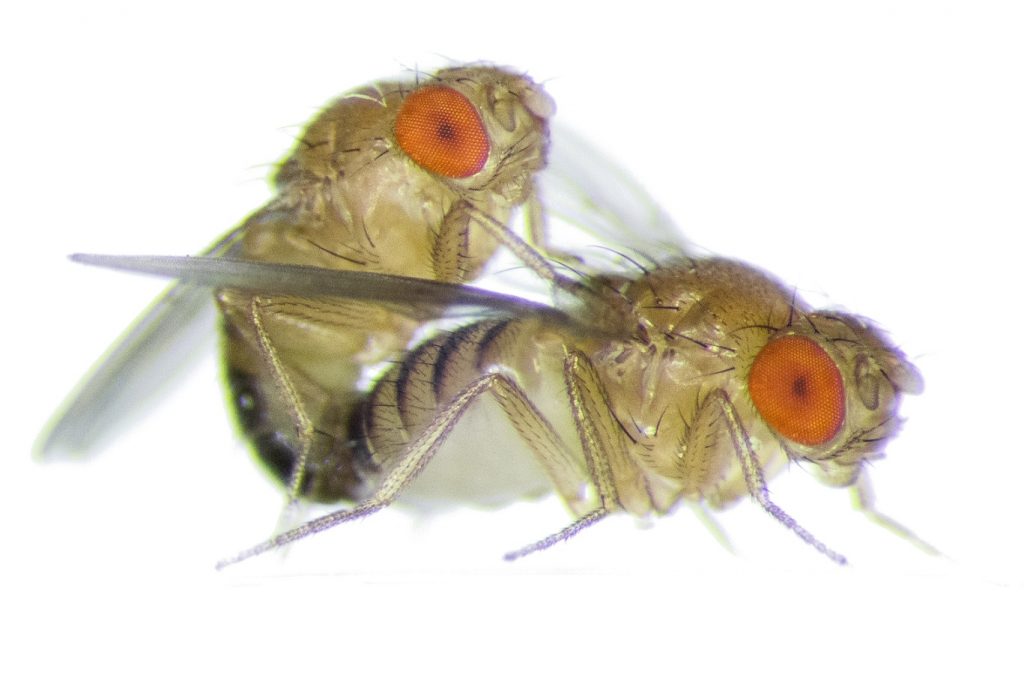No cuddling after sex for female fruit flies
Female fruit flies reject male advances and start headbutting each other for food after mating, new Oxford University research shows. Zoologists say it’s highly likely that behaviours such as these are happening in other insects too.
A team of researchers led by Dr Eleanor Bath and Dr Stuart Wigby of the Oxford University Department of Zoology, examined hundreds of fruit flies, assessing the impact of mating on female fruit fly behaviour, and to what degree it alters their levels of aggression.
They found levels of aggression soar after sex, when a variety of proteins, which flow freely in semen, stimulate dramatic behavioural and physiological changes in females. Other changes identified by Oxford researchers in female fruit flies include increased ovulation, rejection of male advances and loss of interest in sex.

The research proposed that aggression was potentially stimulated by two factors; either indirectly as a result of costly egg-production, or directly by coming into contact with the components contained in the male’s ejaculate. The team intend to conduct further analysis into the effects of the behavioural change, pinpointing the exact time that their intolerance intensifies, and how long the effects of the sex-peptide last.
“Knowing whether female aggression benefits females in the wild could help us to understand fruit fly population dynamics. Potentially having more aggressive females might result in females doing less well in the wild, meaning that we could potentially use female aggression as a behavioural tool to control pest insect populations,” Dr Eleanor Bath said.
Fruit flies are also known as Drosophila melanogaster, a species of fly that is approximately one-eighth of an inch in length, with red eyes. Fruit flies are known for being drawn to ripe or rotten foods like fruits and vegetables.
The paper entitled ‘Sperm and sex peptide stimulate aggression in female Drosophila,’ is published in Nature Ecology & Evolution.